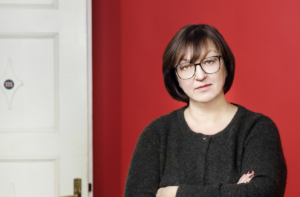Elitza Stanoeva (Bulgarian Academy of Sciences)
Abstract
In societies undergoing profound transformations, the architectural heritage of the recent denounced past is often stigmatized as a cultural product and therefore symbol of the ousted regime and is accordingly subjected to demolition. I will discuss how the fate of such heritage – monuments, signature buildings and other sites – was debated, contested and reevaluated by architects who felt excluded from the decision-making process on what in their mind were problems pertaining to their own expertise. Thus, architects spearheaded the heritage debate driven by what I define as ‘politics of professionalization’ – that is, a pursuit for expert agency and public recognition. The research I will present focuses on Bulgaria in three periods of political transformation: nation-state building after 1878, state socialism after World War II and liberal democracy after 1989. I will discuss how architects’ reassessment of the heritage of the immediate past ran parallel to the evolution of their corporate organizations and interests, and was respectively linked not only to other problems of urban planning but also to issues of professional identity.
Biografie
Elitza Stanoeva holds a PhD in History (TU Berlin, 2013). As a postdoctoral researcher she has held fellowships in Germany, Austria and Bulgaria. Recently, she was at the European University Institute in Florence as a Research Associate in the ERC project PanEur1970s (October 2016 – September 2020) and at the Center for Advanced Study in Sofia as a Visiting Fellow (October 2020 – July 2021). She is author of the book Sofia: Ideology, Urban Planning and Life under Socialism (in Bulgarian). Her latest publications include: “Balancing between Socialist Internationalism and Economic Internationalization: Bulgaria’s Economic Contacts with the EEC”, in Romano and Romero (eds.), European Socialist Regimes’ Fateful Engagement with the West: National Strategies in the long 1970s (London: Routledge, 2021); “Squeezed between External Trade Barriers and Internal Economic Problems: Bulgaria’s Trade with Denmark in the 1970s” (European Review of History: Revue européenne d’histoire 27:3/2020); “Exporting Holidays: Bulgarian International Tourism and the Scandinavian Market in the 1960s and 1970s” in Pedersen and Noack (eds.), Tourism and Travel during the Cold War: Negotiating Tourist Experiences across the Iron Curtain (London: Routledge, 2020). Her ongoing research is focused on urban history and memory politics in socialism and post-socialism; détente and East-West economic cooperation; Cold War tourism.



